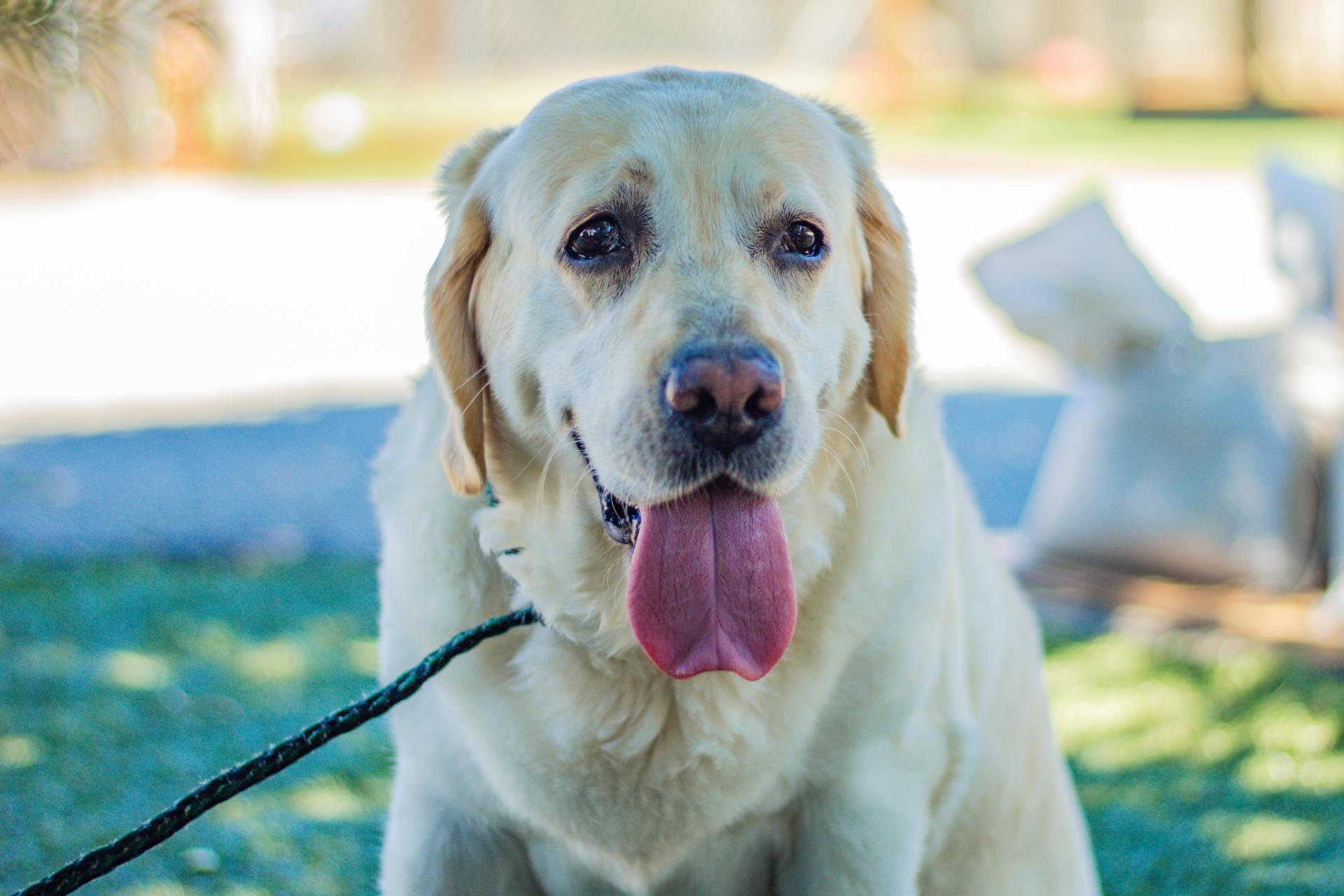Key Things Fort Myers, FL Dog Owners Should Know About the New Canine Respiratory Disease
You may have seen stories in the news lately about a puzzling new respiratory illness impacting our canine friends. This ‘mystery illness’ is something that all dog owners need to be aware of. Pooches all over the country have been infected and, sadly, several have succumbed. A number of organizations, including the agriculture departments of Colorado and Oregon and the American Veterinary Medical Association (AVMA), have issued warnings. In this article, a veterinarian from Fort Myers, FL provides some insight into this issue.
The Mystery Canine Respiratory Illness: What Is It?
Well, that appears to be the ten million dollar question. There are many possibilities… and many questions. The new canine respiratory illness has not yet been identified positively. In fact, we aren’t sure yet if this is a completely new disease or a new strain of something familiar.
What we do know is that the new canine respiratory illness is definitely a cause for concern. Infected dogs can become extremely ill very quickly. Although many dogs recover with proper treatment, this unfortunately isn’t always the case. A number of pups have succumbed to the illness, with some declining very quickly. Other dogs faced a very difficult fight to recovery: some required surgical intervention, while others were placed on ventilators.
The new illness is similar to kennel cough. However, that can be a bit confusing, as the term kennel cough is used to describe a number of respiratory illnesses in our canine pals. Kennel cough can be caused by bacteria or viruses, and can be mild or life-threatening. One key distinction? Unlike kennel cough, the mystery illness does not always resolve with treatment.
Which Dogs Are Most At Risk From The New Canine Respiratory Illness?
All of our canine companions are at risk to some extent or another. However, there are some things that may increase Fido’s risk. Close contact with other dogs is the biggest one, of course. Other pooches at elevated risk include senior dogs, puppies that have not yet received all of their initial vaccinations, dogs with weakened immune systems, and brachycephalic pups, such as English bulldogs and pugs.
The Mystery Disease: What Are The Warning Signs?
Symptoms of this condition are similar to those of other canine respiratory conditions. Coughing is the most common. It may start out mildly, but sometimes accelerates very quickly. Some pooches have gotten very, very sick within just 24 to 48 hours.
Other red flags to watch for include rapid, labored breathing, wheezing, weight loss, discharge from the eyes and nose, dehydration, fever, and loss of appetite. Your furry buddy may also seem very tired, and may opt for snoozing in his doggy bed rather than playing or cuddling. Contact your Coral Springs, FL vet immediately if you notice any of these symptoms.
(Note: if your pet needs emergency care, let the clinic know that Fido may be infected, so they can take preventative steps to reduce the risk of spread.)
Currently, no official test exists for the new respiratory illness. However, we do know that the dogs that were diagnosed with it tested negative for more common canine respiratory illnesses. Another key indicator? Usually, when Fido gets a cough, it only lasts about a week or so. However, this particular cough persists, and often only gets worse.
What Causes The New Mystery Canine Respiratory Illness?
We’re not sure yet. We are getting closer, though. The University of New Hampshire’s Veterinary Diagnosis Laboratory and Hubbard Center for Genome Studies have identified a pathogen that may be responsible for the outbreak. The pathogen in question has been referred to as a “funky bacterium” and seems very good at avoiding and defeating Fido’s immune system, though more information is needed. They reached this conclusion after studying genetic samples from 70 dogs, all of whom were from New England. About 30 of the furry subjects were New Hampshire pooches that were infected last year. The rest were Massachusetts and Rhode Island, and got sick this year.
Can People Catch The Mysterious Dog Disease?
Fortunately, the risk of human contamination appears to be very low, according to research conducted by the American Veterinary Medical Association and other organizations. There’s also more good news: the illness does not seem to be spreading to other pets. However, we would suggest washing your hands thoroughly after handling or petting your furry friend, just as a precaution to help prevent spread.
How Widespread Is The Canine Mystery Respiratory Illness?
Getting exact numbers is quite difficult now. Most states aren’t keeping formal track of the outbreak. Plus, many cases have been reported based on symptoms alone. Additionally, tests can sometimes result in false negatives. Fido may be infected and spreading the disease while still asymptomatic, as there may be a window between the time when he contracts the disease and when he becomes ill enough to need veterinary care.
That said, new cases are still being reported. With the busy holiday/travel season, many dogs will be visiting salons or kennels. It wouldn’t be surprising if we see an uptick in cases after the holidays.
Where Are The New Mysterious Dog Illness Outbreaks Happening?
Several states have reported cases of the unknown canine respiratory disease. The list includes California, Colorado, Florida, Georgia, Idaho, Illinois, Indiana, Maryland, Massachusetts, Nevada, New Hampshire, Oregon, Pennsylvania, Rhode Island, Vermont, and Washington. In Oregon alone, there have been more than 200 cases since August. The outbreak has unfortunately also spread to Canada.
How Can I Protect My Pup From Mystery Illnesses?
Until a vaccine is developed, there is no way to prevent Fido from contracting the respiratory illness. However, there are some things you can do to lower his chances.
In addition to the core vaccines, we recommend getting Fido the Bordetella vaccine. This is always recommended—and often required—if your canine pal will be in contact with other dogs. If your pooch is going to be at daycare, boarding facilities, parks, or even playdates, you should have them vaccinated against these diseases. For more information, please contact your veterinarian.
If you want to be on the safe side, you could consider all doggie gatherings as potential infection hotspots. The most dangerous places are spots where a lot of pups come into close contact, such as groomers’ salons, kennels, dog parks, and doggy daycares. You don’t have to quarantine Fido: just make informed choices about how and when he interacts with his four-legged pals. Ask your kennel or groomer about this. For more information, contact your Fort Myers, FL animal clinic.
How Do Dogs Spread The Mystery Canine Illness?
Close contact seems to be the culprit. It seems that dogs are getting sick after breathing the same air as infected pups. The disease could also spread through direct contact between dogs, such as friendly ‘snoot boops’ between Fido and his buddies, or by sharing bowls, toys, and bedding … or that stick at the dog park all the pups want to play with.
Summary: Dog owners should stay up to date about the new canine respiratory disease, particularly if your furry friend has respiratory problems and/or a compromised immune system. While there’s no need to panic, you should watch for the warning signs. These include coughing, fatigue, weakness, reduced appetite, and nasal discharge. If you notice anything amiss, contact your Fort Myers, FL veterinary clinic immediately.
Please feel free to contact us, your local Fort Myers, FL pet hospital, with any questions about your pet’s health or care. We are committed to providing top quality veterinary care to all of our furry patients.





